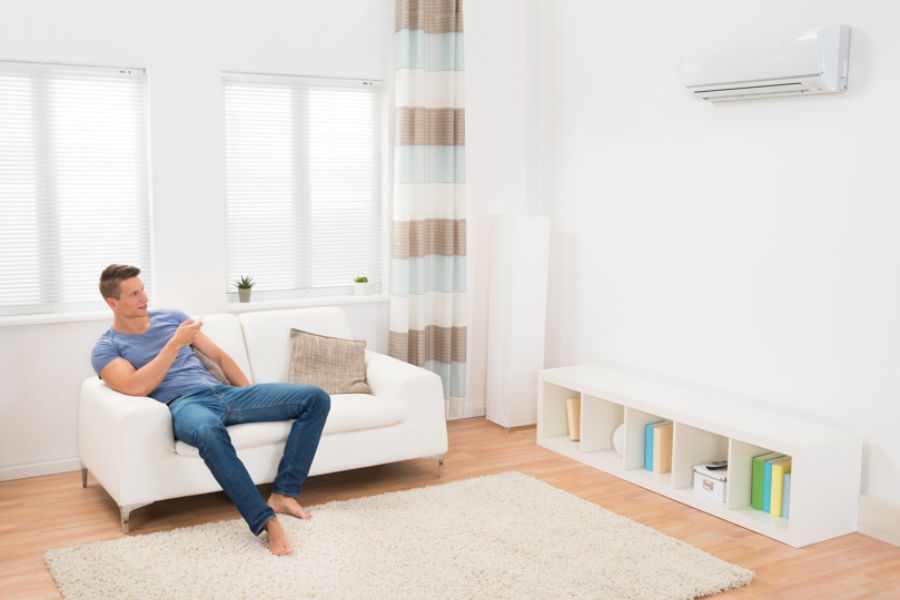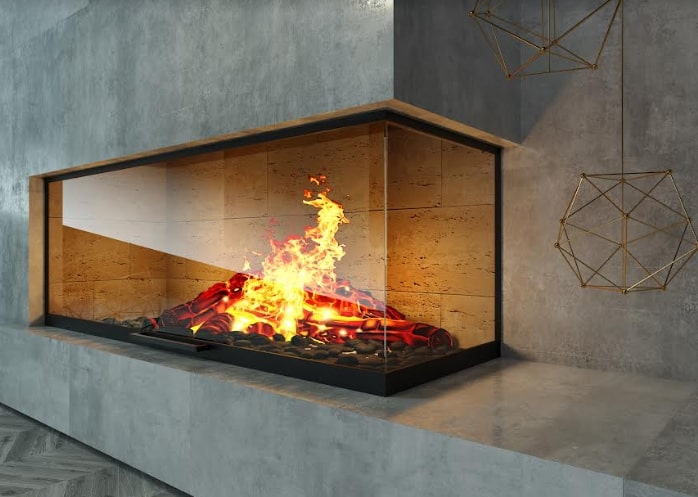Imagine coming home to a cool and comfortable sanctuary after a long, hot day. It’s the dream, right? But achieving this comfort depends heavily on one crucial decision—choosing the right air conditioner for your home.
Not only does this impact your comfort, but it also affects your energy bills and overall home efficiency. This guide will break down the different types of air conditioners, highlight key factors to consider, and help you make an informed choice that best suits your needs.
Types of Air Conditioners
There are several AC options. Each type has unique features and benefits, so it’s essential to understand them before making a decision.
Central Air Conditioning Systems
Central air conditioning systems are a popular choice for many homeowners. They cool the entire house through a system of ducts and vents. These systems are highly efficient and provide consistent cooling throughout the home. However, they require professional installation and can be costly upfront.
Ductless, Mini-Split Air Conditioners
Ductless, mini-split systems are perfect for homes without existing ductwork. These systems consist of an outdoor unit and one or more indoor units, offering flexibility in cooling specific areas of your home.
They are energy-efficient and easy to install. The main downside is that they can be more expensive than other options, especially if you need multiple units.
Window Air Conditioners
Window air conditioners are a common sight in many homes. They are affordable, easy to install, and perfect for cooling single rooms.
However, they can be noisy and may obstruct your window view. They are also less energy-efficient compared to other types of air conditioners.
Portable Air Conditioners
Portable air conditioners offer the ultimate flexibility. They can be moved from room to room and are relatively easy to set up. These units are ideal for temporary cooling solutions or for renters who cannot install permanent systems. On the downside, they can be noisy and less energy-efficient.
Factors to Consider
Choosing the right air conditioner involves more than just picking a type. Several factors should influence your decision to ensure you get the best performance and value for your money.
Home Size and Layout
The size and layout of your home play a significant role in determining the type of air conditioner you need.
Central air conditioning systems are great for larger homes with existing ductwork. In contrast, ductless systems are ideal for smaller homes or areas needing cooling. Window and portable units work best for single rooms.
Energy Efficiency
Energy efficiency is crucial for reducing utility bills and minimizing environmental footprint. Look for units with high SEER (Seasonal Energy Efficiency Ratio) ratings for central and ductless systems. Energy Star ratings on window and portable units indicate they meet energy efficiency guidelines.
Installation and Maintenance Costs
Consider the installation and maintenance costs associated with each type of air conditioner. Central systems require professional installation and regular maintenance, which can be costly.
Ductless systems also need professional installation but may have lower maintenance costs. Window units are easy to install, but keeping them clean and functional requires regular maintenance. Portable units are the easiest to set up but may need frequent filter changes and cleaning.
Cooling Capacity
Cooling capacity determines how effectively an air conditioner can cool a space. Choosing a unit with the appropriate BTU rating for your room size is essential. An undersized unit will need help to cool the space, while an oversized unit will cycle on and off too frequently, wasting energy.
Noise Levels
Noise levels can significantly impact your comfort, especially if the air conditioner is in a bedroom or living area. Central and ductless systems are generally quieter than window and portable units. Look for units with low decibel ratings to ensure a peaceful environment.
Comparison of the Options
Each type of air conditioner has its pros and cons. Understanding these can help you weigh the options and choose the best one for your home.
Pros and Cons of Each Type
Central Air Conditioning Systems
- Pros: Efficient, consistent cooling, covers the entire home
- Cons: High installation costs, requires ductwork
Ductless, Mini-Split Air Conditioners
- Pros: Flexible installation, energy-efficient, quiet
- Cons: Higher upfront costs, multiple units needed for large homes
Window Air Conditioners
- Pros: Affordable, easy to install
- Cons: Noisy, obstructs window view, less efficient
Portable Air Conditioners
- Pros: Flexible, easy to set up, no permanent installation
- Cons: Noisy, less efficient, requires frequent maintenance
Best Uses for Each Type
- Central Systems: Large homes with existing ductwork
- Ductless Systems: Homes without ductwork, specific areas needing cooling
- Window Units: Single rooms, budget-friendly options
- Portable Units: Temporary cooling, rental properties
Making the Decision
Choosing the right air conditioner involves considering your home’s needs and lifestyle. Here are some personalized tips to guide you.
Personalized Considerations
Consider your home’s size, the number of rooms you need to cool, and whether you have existing ductwork. Portable units are ideal if you’re renting or need a temporary solution. For long-term investment, central or ductless systems may be better.
Tips for Choosing the Best Air Conditioner
- Assess Your Needs: Determine which areas of your home need cooling and how often.
- Set a Budget: Consider both initial costs and long-term savings from energy efficiency.
- Read Reviews: Look for customer reviews and ratings to gauge performance and reliability.
Choosing the best air conditioner for your home is crucial for comfort, efficiency, and cost savings. By understanding the different types of air conditioners, assessing key factors, and comparing options, you can make an informed decision that suits your needs. Remember, the right air conditioner will keep you cool and enhance your home’s energy efficiency.







